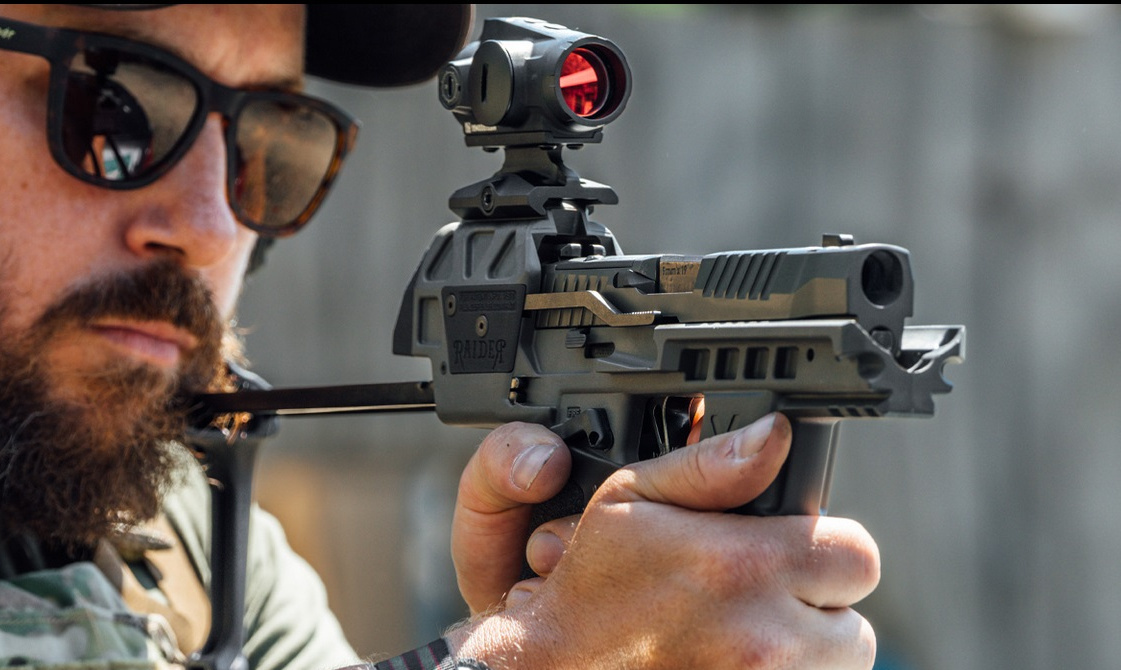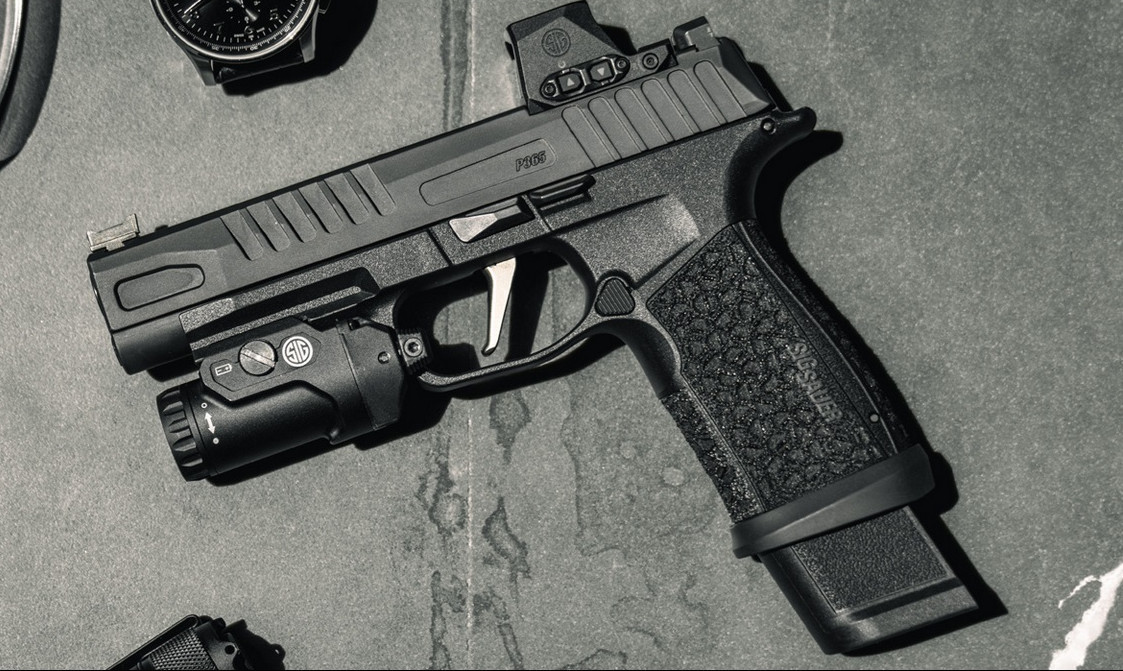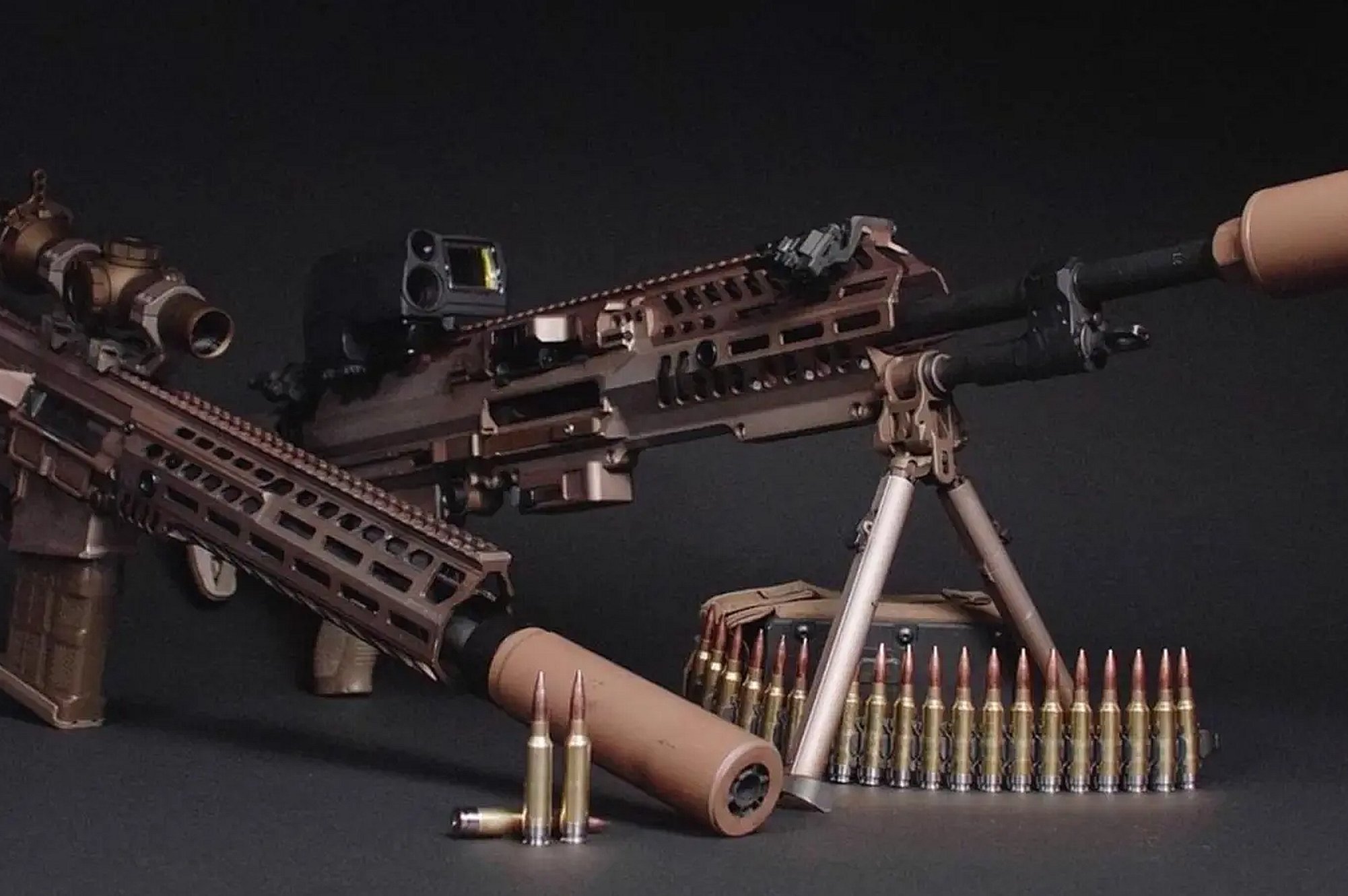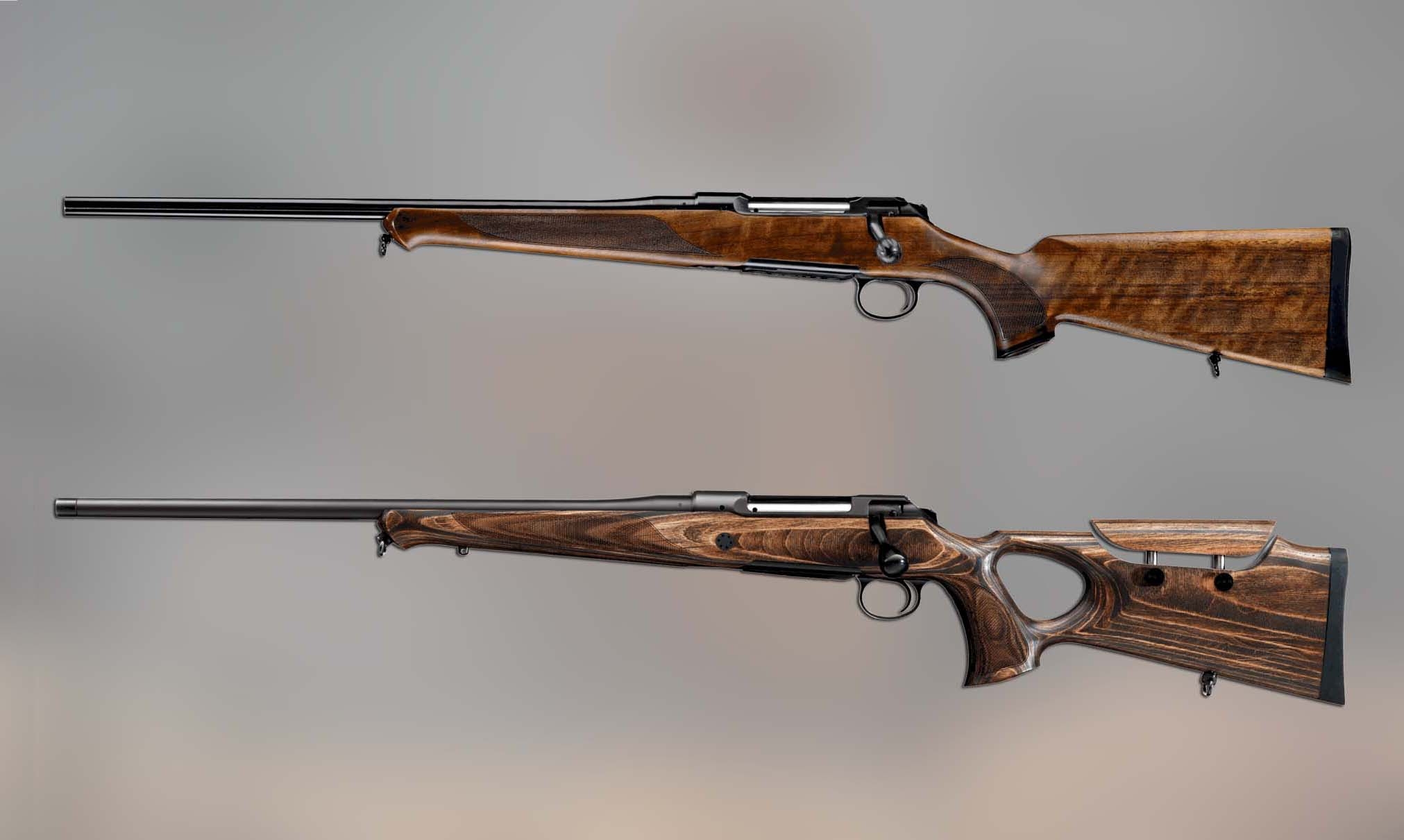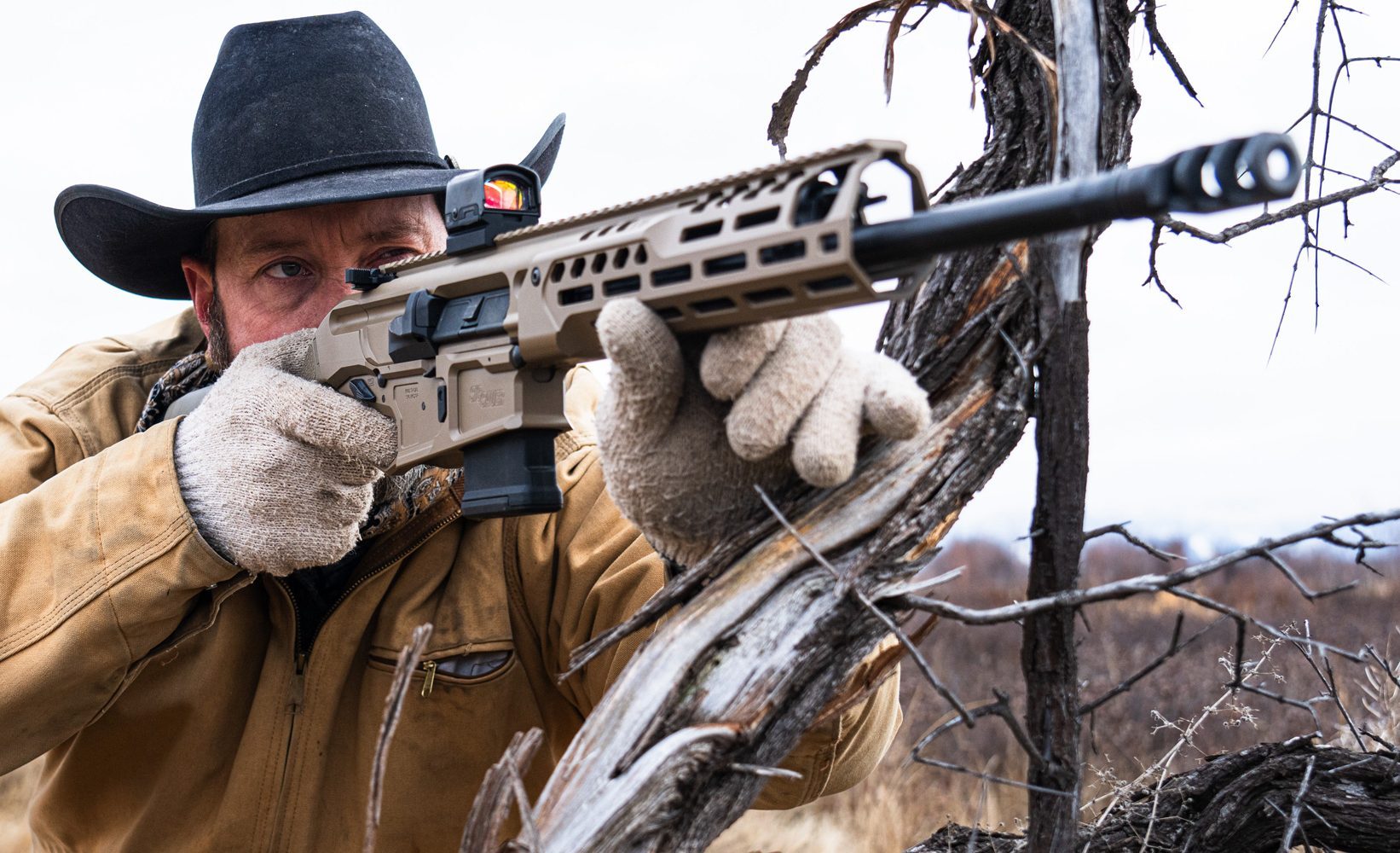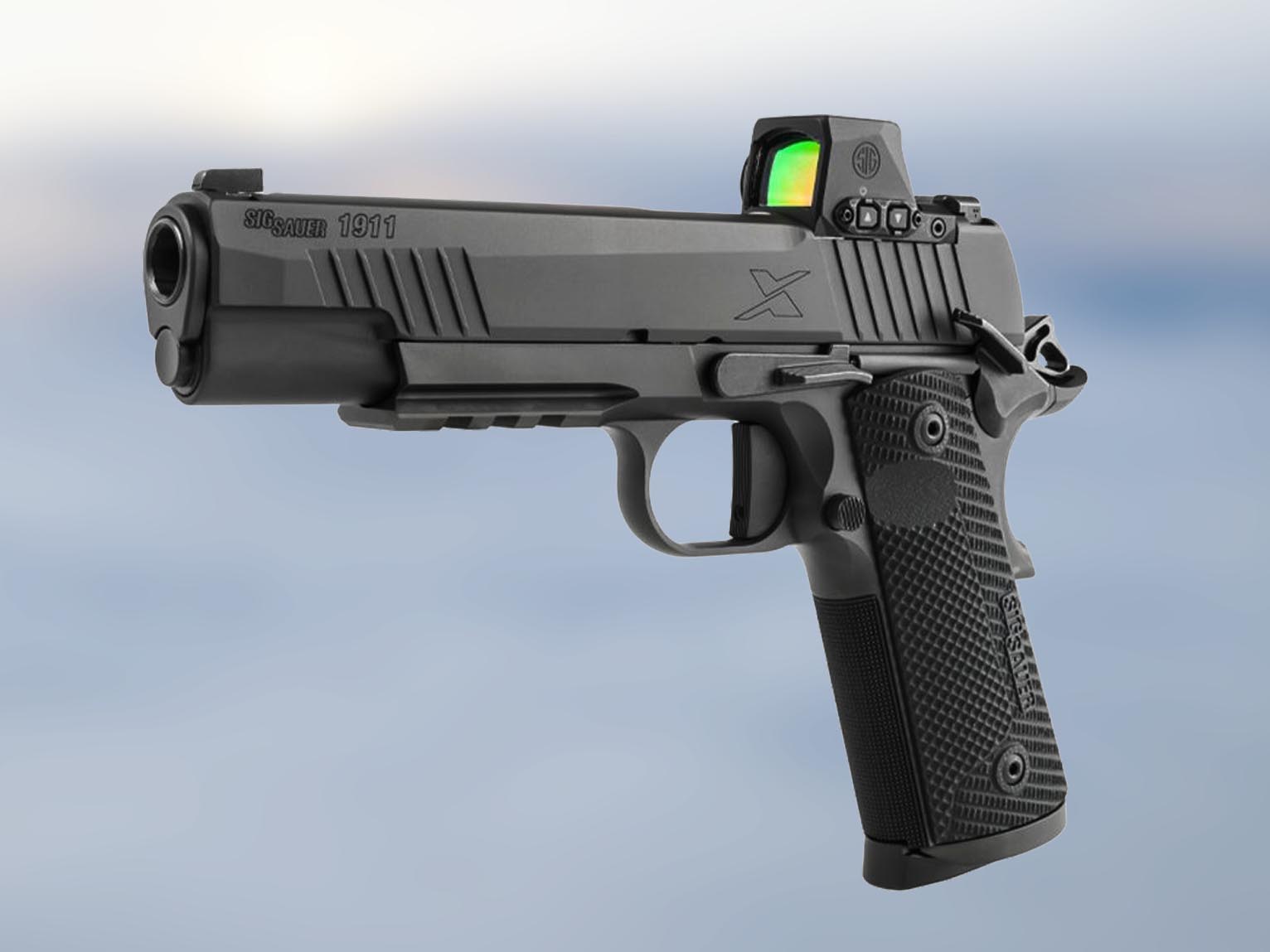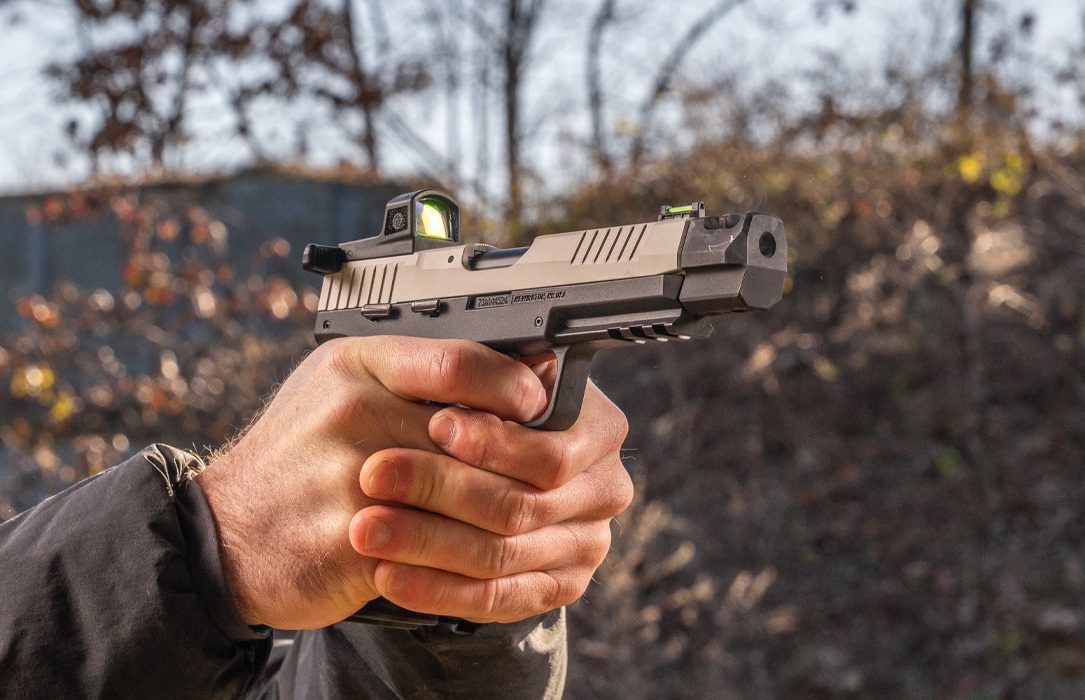Certainly, the more current P320 is an extremely successful service pistol in the military and LE world; after all, SIG Sauer won the U.S. Army's "Modular Handgun System" (MHS) competition with it in the form of the M17 Full Size and M18 Compact six years ago (we reported on that here). But in the era of technological predecessors in the form of the typical "Wondernines", I.e. hammer-fired service pistols with aluminum frames such as the Beretta 92 FS or Smith & Wesson 5906, the SIG Sauer P226 was also a real winner. It must be remembered here that the Austrian Gaston Glock was already in the mix at the time with his G17 service pistol and was ahead of the times, because it is only today that polymer frame pistols are the recognized golden standard.
The SIG Sauer P226 series has a glorious past

SIG Sauer USA promotes the classic P226 family by pointing out that it is the duty pistol of the US Navy SEALs (now alongside the Glock G19). This is true and represents only the tip of the iceberg, as the list of official users reads like a "Who's Who" of elite institutions and units. For in addition to the Navy SEALs, the Federal Bureau of Investigation (FBI), the Drug Enforcement Administration (DEA), the British Special Air Service (SAS) or the Secret Service and the Texas Rangers also used the classic with Swiss-German origins. The switch from aluminum to polymer for the pistol frame also brought about a change in firing mechanismss. The once-favored hammer-fired system with its typical change from the first shot (long travel, high pull weight) to the subsequent shots (short travel, lower trigger pull weight), which required more training, gave way to the striker-fire action with consistent characteristics from the first to the last shot.
The modern SIG Sauer P226 ZEV in detail
The new SIG Sauer P226 ZEV we have before us is probably the most blatant facelift of the original service pistol; because it was deeply intervened in the basic design. The proven DA/SA trigger combination with safely operable and independent decocking lever has inspired many service weapons. In the P226 ZEV, reworked by the U.S.-based renowned tuner ZEV Technologies of Centralia, Washington, the double-action trigger gave way to a single-action trigger combined with a 1911-style double-sided rotary thumb safety, so that, as with the polymer service pistols, the trigger characteristics remain consistent from the first to the last shot, though technically this is actually a step backward. Be that as it may, the idea of implanting a single-action trigger into the P220/P226 platform is not really new either. After all, this step was already taken with the German P226 X-Five/X-Six models in 2004/2005 as well as with the US P220 Legion and P226 Legion models.
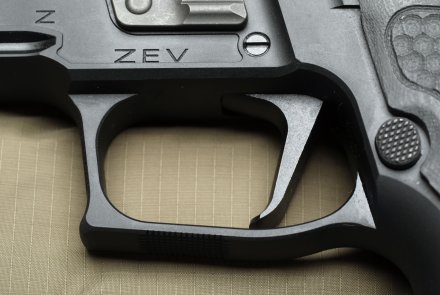
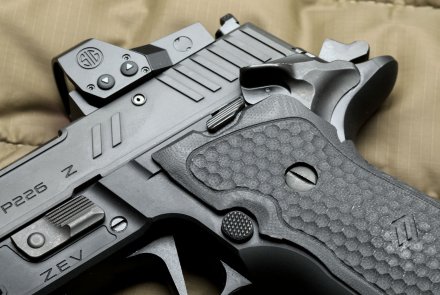
In typical ZEV fashion, the matte black-coated stainless steel slide received cuts on the sides as well as ornamental milling work, which continues on the top of the slide. These millings are not just decorative, however, but also serve as serrations for gun manipulation. The barrel has been lengthened to 5" (127 mm), has hemispherical millings on its surface, and a muzzle thread that extends beyond the front of the slide. The thread can be used for mounting a compensator or silencer. Otherwise, it is protected by a distinctive threaded cap also found on the ZEV OZ 9 pistols. The light alloy frame with extended beavertail and mounting rail for attaching gun lights or light-laser modules onto the dust cover is equipped with G-10 grip panels, which provide plenty of grip with their hexagonal surface texture. The straight, wide trigger blade with minimal curvature at its end provides a very good, repeatable contact surface for the trigger finger. The measured trigger pull weight was around 1,500 grams with a slight creep before release.
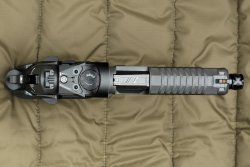
A modernized P226 in the year 2023 also includes a red dot sight. The SIG Sauer Electro Optics ROMEO1PRO Mini Red Dot Sight (MRDS) is enthroned in the corresponding cut on the top of the slide. Even if you have to enter into a forced marriage here, it is by no means a bad choice, as it has an advantageously large window with a circular 3-MOA dot as well as a clean click adjustment. In addition, the optic is designed as a "toploader", so the battery can be changed without removing the MRDS. The iron sights consist of a cross-serrated, side-driftable rear sight with a corresponding front sight with a red fiber optic bar. It's just too bad it doesn't "co-witness" with the in-house red dot sight. The three included sheet steel magazines hold 15 cartridges each. Minor flaws that we noticed during our meticulous examination, including with the borescope: minor machining marks on the barrel's rifling profile and a circumferential burr on the breech face side of the firing pin channel.
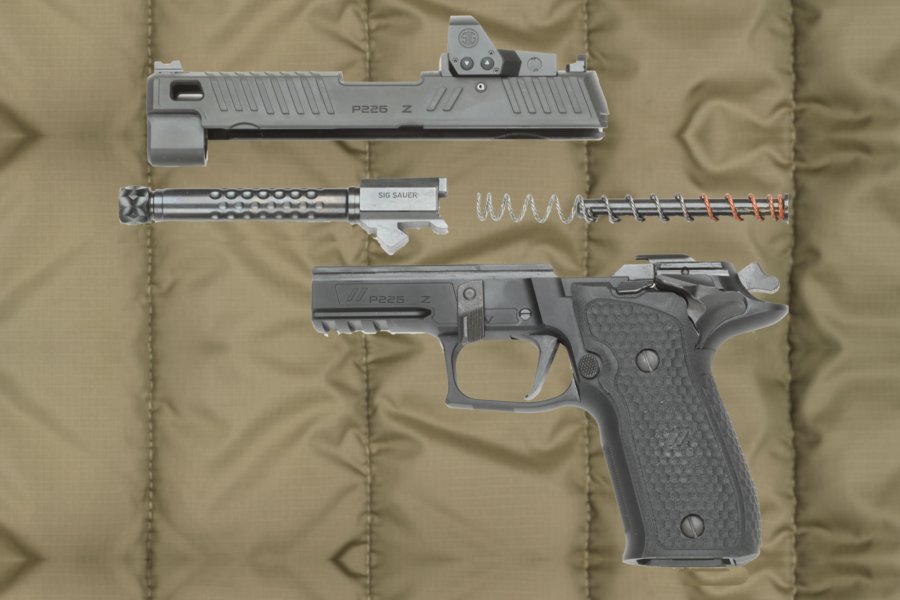
SIG Sauer P226 ZEV specs and price
Model: | SIG Sauer P226 ZEV |
Caliber: | 9mm |
Magazine Capacity: | 15 rounds |
Frame: | Aluminum, black coated |
Slide: | Stainless steel, black coated |
Barrel Length: | 127 mm |
Rear Sight: | 3.5 mm notch, cross-serrated, side driftable |
Front Sight: | 2.85 mm, with red fiber optic insert |
Sight Radius: | 172 mm |
Safety: | Thumb safety on both sides of the frame |
Trigger Pull Weight: | 1,500 g approx. (SAO) |
Dimensions (L x W x H): | 225x44x159 mm |
Weight: | 966 g |
Extras: | SIG Sauer ROMEO1PRO red dot sight already pre-mounted, hard case with 2 spare magazines |
Price (RRP in Germany): | 3,509 euro |
The accuracy test and our conclusion on the SIG Sauer P226 ZEV
Ammunition shortages still dominate the country, so we settled for eight factory ammunition loads from 95 to 140 grains for accuracy testing (Ransom Rest shooting machine at 25 m with 10 rounds per load). For a better assessment of ergonomics and shooting behavior of the P226 ZEV, some dynamic drills were added, where the ROME1PRO could once again impressively demonstrate its already mentioned advantages. The best 10-shot group from the shooting machine was produced by the Norma 124-grain Safeguard with a diameter of 38 mm. It was followed by the lightweight 95-grain Magtech JSP at 49 mm, which left the barrel with a big fireball. In third place was the GECO 124-grain Hexagon at 55 mm. The average of all loads was 65 mm. There were no malfunctions to complain about. In the practical part, we noticed that the slide catch can no longer be operated with the thumb due to the large-sized safety levers. This means that you have to use your other hand to move the slide catch lever out of its “stop” position. To what extent this is really annoying depends on the intended use and personal preferences.
All in all, the new SIG Sauer P226 ZEV in 9mm with its single-action-only trigger system and attractive design, including the ROMEO1PRO red dot sight and three magazines, costs a hefty €3,509. If you subtract the price of the ROMEO1PRO, which is priced at €729, this combo is probably suited for the more ambitious P226 fan.
For further information on the P226 ZEV please visit the SIG Sauer website.




